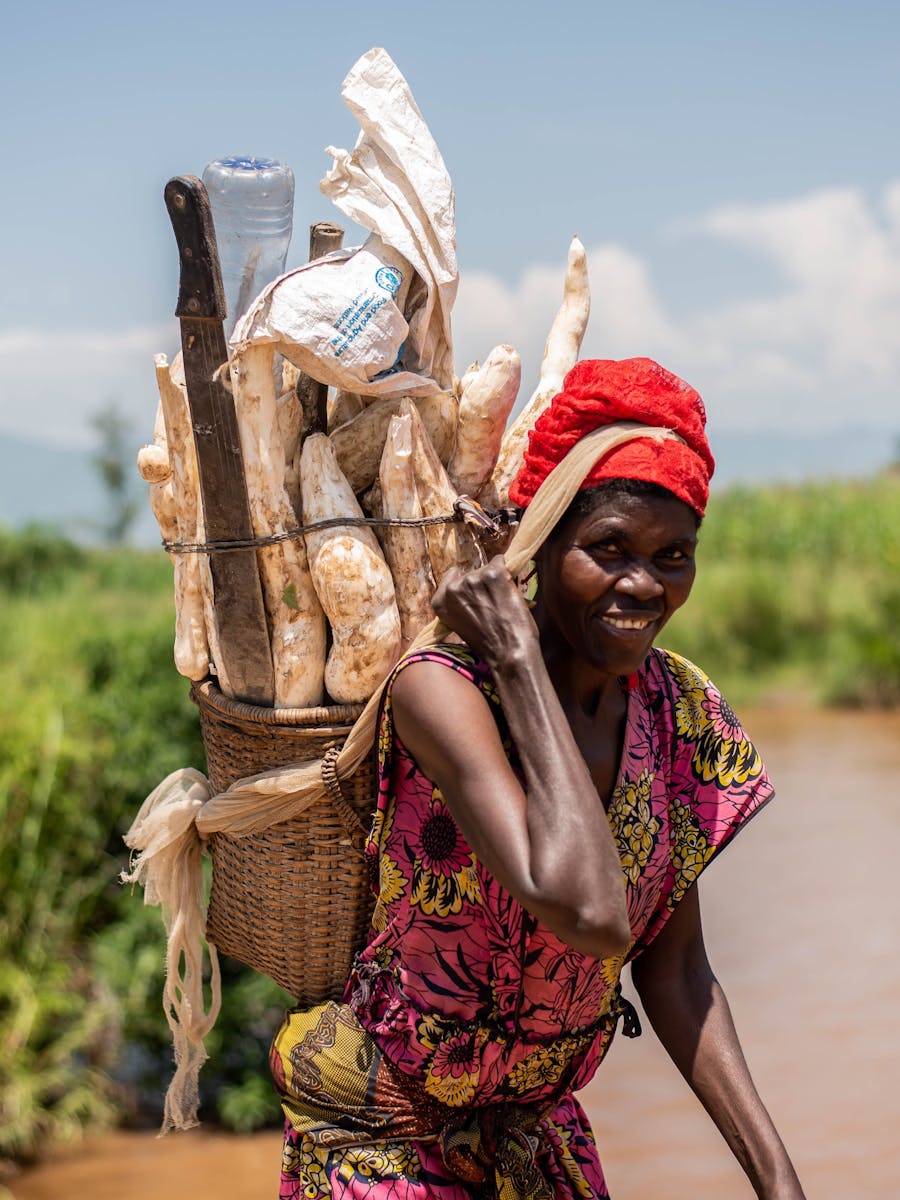
The climate crisis is not gender neutral
Climate change affects everyone, but not equally. For women and girls in low-income and developing regions, climate change often deepens existing inequalities. How can financial inclusion help build climate resilience for the most vulnerable?
Globally women are over-represented among those living in poverty, and in rural areas are highly dependent on natural resources; women are also frequently responsible for securing food, clean water, and fuel, which becomes increasingly challenging during extreme weather events like heatwaves or floods.
In urban areas, low-income women often live in informal settlements or areas most vulnerable to climate impacts, such as floodplains or heat islands, where infrastructure is inadequate and access to essential services is limited.
The climate crisis is far from gender neutral. Limited access to resources, services, and employment opportunities hinders women’s ability to adapt to and cope with climate change. Cultural norms often place an unequal burden of care and domestic duties on women, restrict their land rights, limit their control over their labor, and impede their access to information, finance, technology, and other essential services.
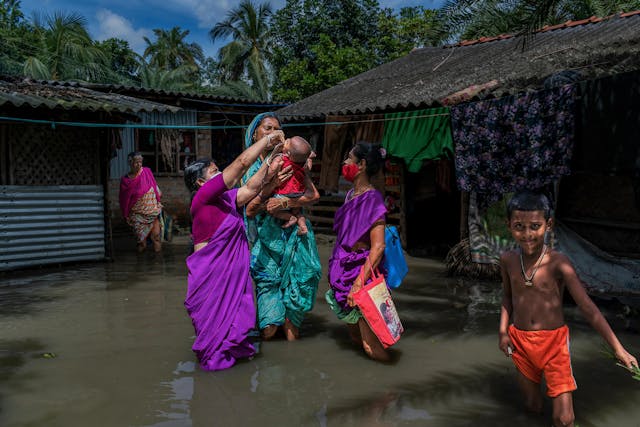
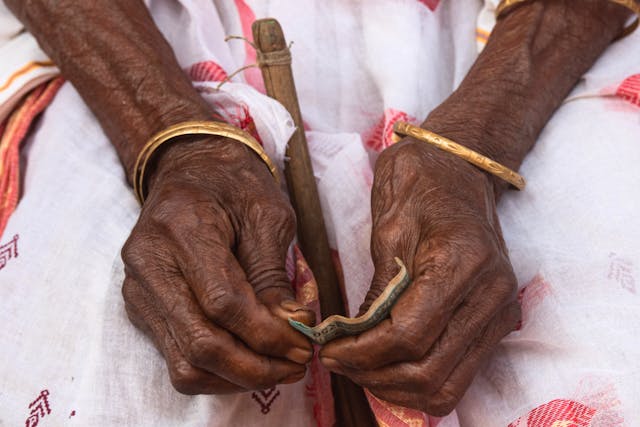
According to UN Women’s estimates, in a worst-case climate scenario, by 2050 as many as 158 million women and girls may be pushed into extreme poverty as a direct result of sustained increases in global temperatures.
At Abler Nordic we invest and build up sustainable financial institutions that enable low-income households in developing countries across Sub-Saharan Africa, Asia, and Southeast Asia to create a better future. Over 91% of our end customers are women and 75% live in rural areas – their ability to create a better future is closely tied to their ability to successfully adapt to the growing effects of climate change.
Rural women bear the brunt
Although women produce up to 80% of food in developing countries, they have significantly less access to finance, land, and machinery compared to men . When crops fail or resources become scarce due to extreme weather, rural women and girls are often the first to feel the pressure. The Unjust Climate report, released in 2024 by the UN’s Food and Agriculture Organization reveals that every year, female-headed rural households in low and middle-income countries (LMICs) experience income losses of 8 percent due to heat stress, and 3 percent due to floods, relative to male-headed households.
On top of this, women smallholder farmers currently produce less than their male counterparts, not due to inefficiency, but because they have unequal access to vital resources like land, credit, and agricultural inputs 3 . In the context of climate change, ensuring women have equal access to these resources becomes even more important, as it enhances their ability to adapt to changing conditions, adopt climate-resilient practices, and sustain food production.
According to FAO estimates, if women farmers had the same access to productive resources as men, they could increase their yields by 20 to 30 percent, raising total agricultural output in developing countries by 2.5 to 4 percent— crucial gains in a world facing more frequent and severe climate impacts.
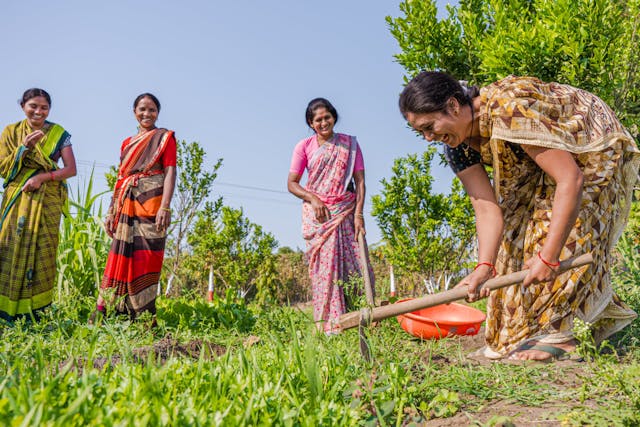
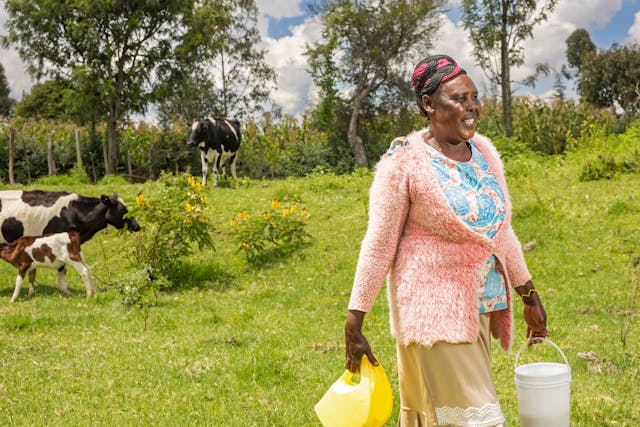
Financial inclusion: a key to climate resilience
At Abler Nordic, we believe that access to high quality, affordable and relevant financial services is essential for building climate resilience, particularly among women in low-income and rural communities. As CGAP writes in their report, Bolstering Women’s climate resilience and adaptation through financial services, financial inclusion plays a central role in enabling the autonomous climate adaptation responses that vulnerable people can take to cope with climate change.
Helping people manage risk and build resilience is one of the central functions of financial services. Small loans allow women to invest in climate-resilient solutions like drought-resistant crops, efficient irrigation systems, and small businesses that diversify income sources. These investments can improve productivity, reduce risk, and create financial stability in the face of climate change.
Savings accounts play a critical role by offering a financial safety net, helping women withstand climate shocks without resorting to the sale of essential assets. Accumulating savings also enables rural women to invest in improved inputs, irrigation systems, solar cells, biodigesters, and other climate-resilient solutions that reduce labor, save time, and generate energy.
Data from the 2024 60 Decibels Microfinance Index showed a positive correlation between microloan borrowers’ ability to handle a major emergency expense and their improved financial management and savings balance, underscoring the crucial role of microfinance in building resilience against climate-related shocks.
Insurance products further protect women against crop failures, natural disasters, and other climate-related risks, providing a crucial safety net that helps them recover more quickly and effectively.
Digital financial services, including mobile money, have significantly improved access to savings, credit, and insurance for rural women who were previously excluded from formal financial systems. These services enable women to manage risks, especially in the face of climate shocks. When combined with digital financial literacy and targeted business training, these tools strengthen women’s capacity to adapt to changing climate conditions, improve agricultural practices, and take advantage of new economic opportunities.
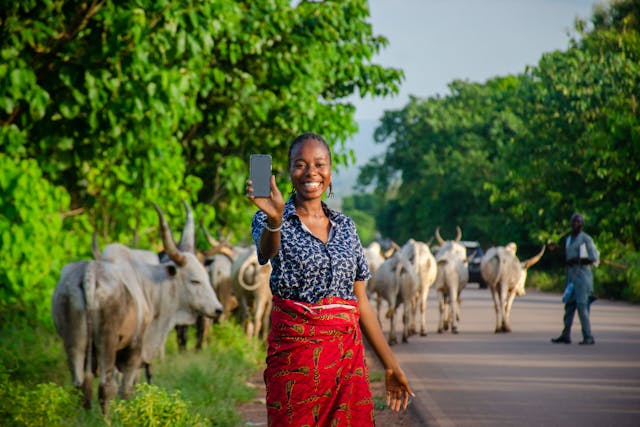
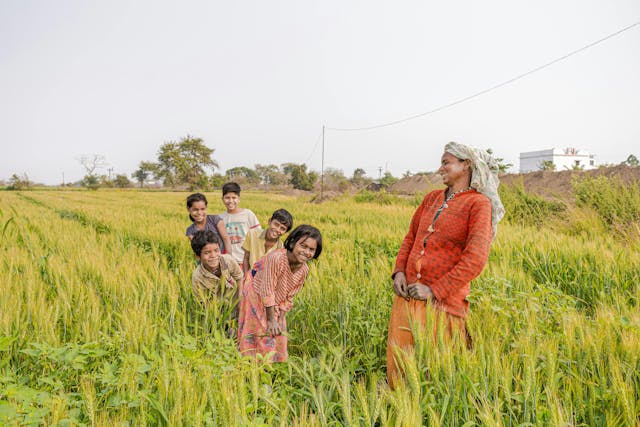
How do we work to boost climate resilience?
Our approach at Abler Nordic is centered on supporting our investees in developing practical, adaptive strategies that build climate resilience for their customers. The climate crisis is complex, affecting different regions and groups in unique ways, and requires tailored solutions. We adapt our approach based on the local context and the specific needs of each company, while drawing from a common and ever-evolving toolbox of methods.
Our active ownership approach, including board representation, means we collaborate with our companies in making strategic decisions and prioritizing climate resilience through clear actions and targets in our value creation plans. This involvement ensures that our efforts are aligned with both the immediate and long-term needs of our investees.
Through our Norad-funded Technical Assistance facility we support projects at our companies that enhance their understanding of the effects of climate change in their local context and its impact on their customers. This is a critical first step, providing the foundational knowledge necessary to then build on in subsequent projects, whereby specific products and services can be developed that address climate adaptation.
Depending on the maturity of the company, our support includes the development of products like specialized insurance and savings tools designed to help customers adapt to climate risks. We particularly emphasize savings as a key tool for building resilience.
Additionally, where relevant, we support our companies to develop financing for ‘clean products,’ such as energy-efficient cookstoves and home solar systems, which reduce greenhouse gas emissions and help clients adapt to environmental changes. While developing financially sustainable ‘clean’ products is not straightforward and there is no one size-fits-all solution, we are committed to fostering innovation and supporting partnerships in this area. Without dedicated efforts to innovate and test, effective solutions will remain out of reach.
We also dedicate significant resources to impact surveys to better understand the specific climate-related challenges faced by our low-income end-customers. We firmly believe that listening to customers is both powerful and good for business, ensuring our efforts are aligned with their needs and priorities.
